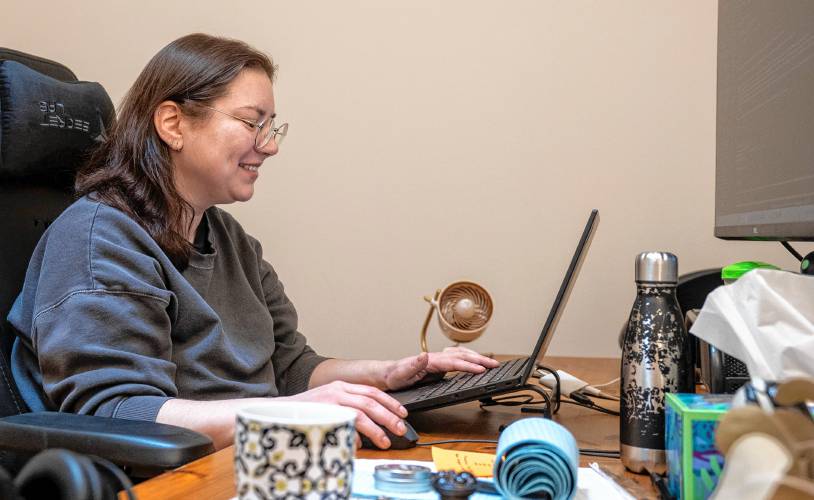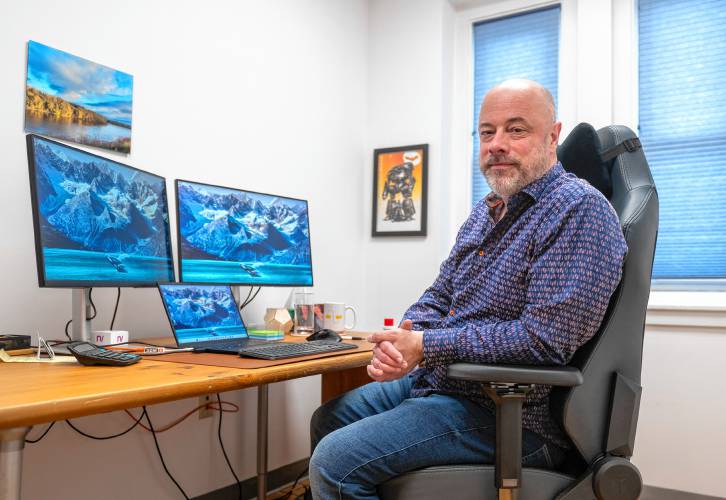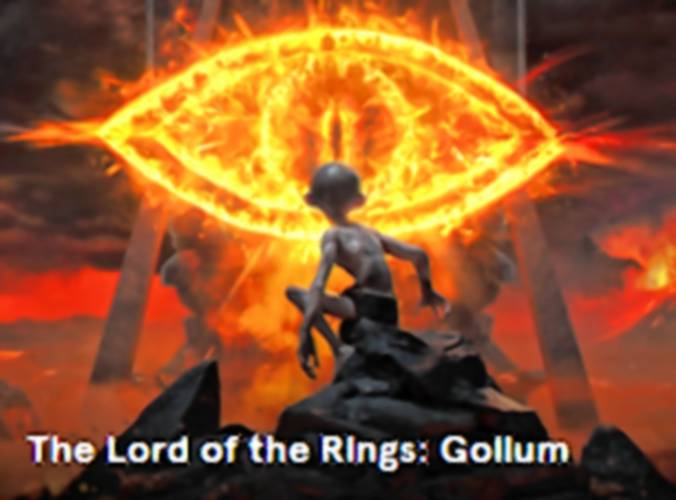Business of video games: Digital Development Management has found success helping game developers find larger audience
|
Published: 02-27-2025 3:13 PM
Modified: 02-27-2025 5:03 PM |
NORTHAMPTON — Joe Minton knows that video games are serious business.
After graduating from Hampshire College, Minton ran a local video game development studio, Cyberlore Studios, that produced games for both consoles and PCs for 13 years. Following its closure in 2005, Minton took a different approach to working in the games industry.
“I became very passionate about the business side of the video game industry and sort of the plight of the creatives,” Minton said. “As in almost any industry that has creatives, they get the short end of the stick on the business side. And there was not a professional agency system the way that there was in Hollywood and other places.”
It’s with that mindset that Minton founded Digital Development Management, or DDM, which has since gone on to represent more than 70 clients and sign more than 750 deals totaling in excess of $1 billion in its 19 years of existence. It has several offices across California, Europe and Japan, but its global headquarters remains right in Northampton.
“I kept trying to leave the area, but I’m one of the Hampshire freaks who loved Hampshire and fell in love with the area, so decided to make things work here,” Minton said.
Unlike talent or sports agents, whose clients generally consist of individuals, DDM’s clients are generally entire companies that are developing a video game and looking to find a larger game publishing company, such as Activision Blizzard or Electronic Arts, to bring their game to the market and provide funding. DDM provides consultation to developers on how they can make their game more attractive to market trends, as well as help broker deals between developers and studios.
Rebecca Owen, a senior business development manager for DDM, often finds herself traveling across the world on a yearly basis to help negotiate deals, going from Los Angeles to Osaka, Japan, to the city of Eindhoven in the Netherlands.
“That’s our strength as an agency, because we have offices spread out like we do. We’re able to do time zones. We’re able to do whatever the local language is,” Owen said. “Because other agencies don’t have the worldwide presence, I think that’s something that they often struggle with.”
Article continues after...
Yesterday's Most Read Articles
 Northampton Housing Authority boss placed on leave
Northampton Housing Authority boss placed on leave
 Hopeful buyers emerge for Magic Wings butterfly conservatory in South Deerfield
Hopeful buyers emerge for Magic Wings butterfly conservatory in South Deerfield
 UMass Chancellor Reyes outlines changes amid financial uncertainty under Trump administration
UMass Chancellor Reyes outlines changes amid financial uncertainty under Trump administration
 Ready to roll on roads: Amherst priority list tees up $4.55M to rebuild some of town’s worst stretches
Ready to roll on roads: Amherst priority list tees up $4.55M to rebuild some of town’s worst stretches
 UMass hockey: Minutemen fall to Western Michigan, 2-1, in Fargo Regional final
UMass hockey: Minutemen fall to Western Michigan, 2-1, in Fargo Regional final
 Amherst School Committee OK’s budget with no classroom layoffs, but spending plan is $500K more than town recommends
Amherst School Committee OK’s budget with no classroom layoffs, but spending plan is $500K more than town recommends
Though a deal can sometimes be hammered out in a matter of weeks, Owen said it often gets much more complicated.
“It can easily go months for contract negotiation, for making sure the lawyers look over everything, for just making sure that everyone is in agreement. And then the work starts,” Owen said. “Everyone and their bosses need to sign off on it. And then if someone changes a role or they leave the company mid-negotiation, we have to try to corral everybody and make it work. It gets hairy.”
Sometimes, the client is a company that is well-established in the entertainment industry or other forms of media but is looking to break into the world of video games. That’s the case with one of DDM’s largest clients, Sanrio, the makers of the Hello Kitty brand. That brand is one of the most lucrative media franchises in the world, but it had little footprint with regards to gaming.
“Inside of gaming, through a lot of bro-prejudice, there was a sense that it’s not a gaming brand,” Minton said of Sanrio. “We knew that wasn’t right, so we worked with Sanrio on a kind of robust strategy to change the script.”
DDM helped Sanrio work out deals to provide a Hello Kitty-themed game for the popular online game platform Roblox, as well as Hello Kitty-themed downloadable content for Minecraft, one of the most popular video games in the world. It also helped launch the Hello Kitty Island Adventure game for Apple’s mobile arcade, which became one of the top games on the arcade.
DDM’s years of working with clients and publishers also give it a unique insight into market trends that hone in specifically on the games industry. That’s led to DDM publishing the Games Investment Review, a quarterly report that tracks significant investments, initial public offerings and mergers and acquisitions within video game companies.
While other outlets provide information on corporate movements and track investments in the industry, like Forbes of Crunchbase, they tend to treat it is a niche topic or group it with other tech-related fields, making it harder to discern market trends.
“We have a very extensive network. We’re able to get a lot of information about what is happening within the industry,” said Peggy Twardowski, the business information director for DDM. “We look at company-wide transactions, not specific to games. Of course, there are certainly companies that specialize in one game, but we’re looking at investments into the companies themselves or the acquisitions of them. And a lot of is very telling.”
Current trends show an industry in a rather tricky situation, Minton said. While consumers continue to spend heavily on video games and flock toward the latest titles, many companies find themselves having to lay off staff, a result of overinvestment hoping that the many hours of gaming due to COVID-19 isolation would continue in perpetuity.
Despite the challenges, Minton said DDM is ready to help companies navigate the terrain of the industry to find what works best for them. The successes of independent game titles have shown that a developer doesn’t need top-notch graphics or intricate game mechanics to succeed.
“People just want to have fun,” Minton said. “So we help to really counsel our clients in rightsizing their pitches into what’s possible in the market.”
Alexander MacDougall can be reached at amacdougall@gazettenet.com.












 ‘Wallace the Brave’ tumbles onto Gazette comics page
‘Wallace the Brave’ tumbles onto Gazette comics page ‘For the love of music’: Florence Community Band set to hold first-ever multigenerational concert
‘For the love of music’: Florence Community Band set to hold first-ever multigenerational concert South Hadley ready for next round of Buttery Brook improvements
South Hadley ready for next round of Buttery Brook improvements Photo: Ladder precision
Photo: Ladder precision
